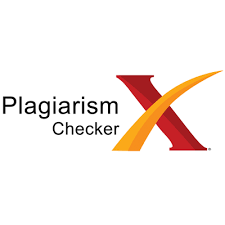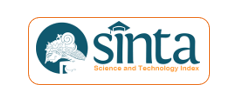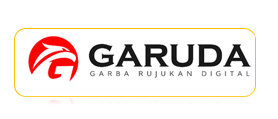- Focus and Scope
- Section Policies
- Peer Review Process
- Open Access Policy
- Archiving
- Policy of Screening for Plagiarism
- Withdrawal of Manuscripts
Focus and Scope
Jurnal Pendidikan Sejarah Indonesia (JPSI) publish original research papers, conceptual articles, review articles and case studies. The whole spectrum of historical learning and history education, which includes, but is not limited to education systems, institutions, theories, themes, curriculum, educational values, historical heritage, media and sources of historical learning, and other related topics.
Section Policies
Articles
Conceptual Articles
Research Articles
Case Study
Peer Review Process
1. The submitted manuscript is firstly reviewed by an editor. It will be evaluated whether it is suitable for JPSI focus and scope or has a major methodological flaw and similiarity score by using Turnitin or other Plagiarism Checker.
2. The manuscript will be sent to at least two anonymous reviewers (Single Blind Review). Reviewers' comments are then sent to the corresponding author for necessary actions and responses.
3. The suggested decision will be evaluated in an editorial board meeting. Afterwards, the editor will send the final decision to the corresponding author.
Review Outcomes
Utilizing feedback from the peer review process, the Editor will make a final publication decision. The review process will take approximately 4 to 8 weeks. Decisions categories include:
1. Reject-Rejected manuscripts will not be published and authors will not have the opportunity to resubmit a revised version of the manuscript to JPSI.
2. Resubmit for Review–The submission needs to be re-worked, but with significant changes, may be accepted. However, It will require a second round of review.
3. Accept with Revisions-Manuscripts receiving an accept-pending-revisions decision will be published in JPSI under the condition that minor/major modifications are made. Revisions will be reviewed by an editor to ensure necessary updates are made prior to publication.
4. Accept-Accepted manuscripts will be published in the current form with no further modifications required.
Correspondence
All correspondence concerning manuscripts should be directed to the Editor of JPSI. The Editor will direct all correspondence to the corresponding author; The corresponding author author is responsible for sharing communications with other authors. Beyond communication concerning the review, manuscripts accepted for publication may require additional correspondence to complete copyediting and layout editing.
Open Access Policy
This journal provides immediate open access to its content on the principle that making research freely available to the public supports a greater global exchange of knowledge.
Open access means that all content is freely available without charge to users or institution. Users are allowed to read, download, copy, distribute, print, search, or link to full text articles in this journal without asking prior permission from the publisher or author. This is in accordance with Budapest Open Access Initiative.
Archiving
This journal utilizes the LOCKSS system to create a distributed archiving system among participating libraries and permits those libraries to create permanent archives of the journal for purposes of preservation and restoration. More...
Policy of Screening for Plagiarism
Papers submitted to Jurnal Pendidikan Sejarah Indonesia (JPSI) will be screened for plagiarism using Turnitin plagiarism detection tools. JPSI will immediately reject papers leading to plagiarism or self-plagiarism.
Before submitting articles to reviewers, those are first checked for similarity/plagiarism tool, by a member of the editorial team. The papers submitted to JPSI must have similarity level less than 20%.
Plagiarism is the exposing of another person’s thoughts or words as though they were your own, without permission, credit, or acknowledgment, or because of failing to cite the sources properly. Plagiarism can take diverse forms, from literal copying to paraphrasing the work of another. In order to properly judge whether an author has plagiarized, we emphasize the following possible situations:
1. An author can literally copy another author’s work-by copying word by word, in whole or in part, without permission, acknowledge or citing the original source. This practice can be identified through comparing the original source and the manuscript/work who is suspected of plagiarism.
2. Substantial copying implies for an author to reproduce a substantial part of another author, without permission, acknowledge or citation. The substantial term can be understood both in terms of quality as quantity, being often used in the context of Intellectual property. Quality refers to the relative value of the copied text in proportion to the work as a whole.
3. Paraphrasing involves taking ideas, words or phrases from a source and crafting them into new sentences within the writing. This practice becomes unethical when the author does not properly cite or does not acknowledge the original work/author. This form of plagiarism is the more difficult form to be identified.
Withdrawal of Manuscripts
Author is not allowed to withdraw submitted manuscripts, because the withdrawal is waste of valuable resources that editors and referees spent a great deal of time processing submitted manuscript, and works invested by the publisher.
If author still requests withdrawal of his/her manuscript when the manuscript is still in the peer-reviewing process, author will be punished with paying $35 per manuscript, as withdrawal penalty to the publisher. However, it is unethical to withdraw a submitted manuscript from one journal if accepted by another journal.
The withdrawal of manuscript after the manuscript is accepted for publication, author will be punished by paying $1000 per manuscript. Withdrawal of manuscript is only allowed after withdrawal penalty has been fully paid to the Publisher. If author doesn't agree to pay the penalty, the author and his/her affiliation will be blacklisted for publication in this journal. Even, his/her previously published articles will be removed from our online system.
Email for requsting of withdrawal: jpsi@um.ac.id









